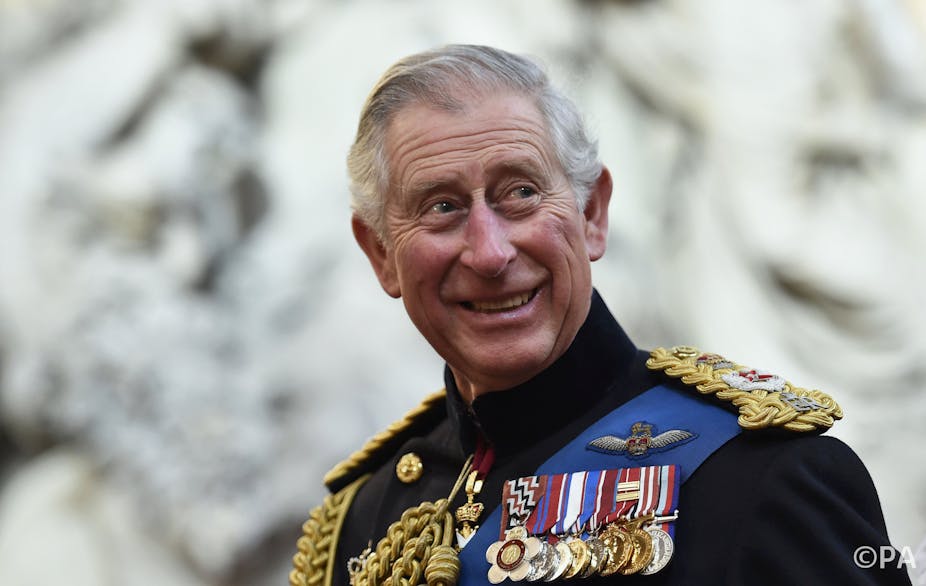The UK Supreme Court has ruled that secret letters sent by Prince Charles to government ministers can be published, following a decade-long battle fought by the Guardian newspaper.
The letters are said to contain Charles’ personal views on a variety of issues. They are seen by some as reflecting an intention to influence government policy. The detail could prove highly embarrassing for Charles, who as heir to the throne cannot be seen as a partisan figure.
The court’s decision is the culmination of a very expensive legal process. It began in April 2005, when Guardian journalist Rob Evans exercised his right under the recently implemented Freedom of Information Act to apply to see 27 letters written by Charles to various government departments since the previous September.
The application followed several reports that Charles was sending handwritten letters to government ministers in an attempt to influence their views.
The seven government departments involved refused to disclose the information and their decision was upheld by the Information Commissioner. In September 2012, a special tribunal upheld Evans’ right to see “advocacy correspondence” from the Prince of Wales on the grounds that this would be in the public interest.

The judgement was swiftly overturned by the then attorney-general, Dominic Grieve, on the basis that Charles’s political neutrality would be undermined by the release of the documents. In March 2014, the Court of Appeal ruled that Grieve had acted unlawfully and backed the tribunal’s conclusion.
Given this definitive Court of Appeal ruling, it can hardly come as any surprise that the Supreme Court has now endorsed it. By the time of the Court of Appeal judgment, this exhaustive process had already cost the British taxpayer nearly £275,000 in legal fees. It had not, however, dissuaded the Prince of Wales from continuing to use his position to promote his private views.
In November 2014, a source close to Charles told the Guardian that he would “be true to his beliefs and contributions,” and would “continue with his heartfelt interventions”.
Diminished public confidence
Even before the letters have been published, this episode has almost certainly diminished public confidence in the institution of the monarchy. The very considerable amount of money the elected representatives of British voters have spent attempting to withhold the truth is just the start.
The distinguished constitutional historian Vernon Bogdanor has suggested that Charles has not undermined trust in his ability to act as a politically neutral monarch on the basis that his interventions were not party-political. But increasingly, the political issues that matter to the British public do not split neatly along party-political lines. In any case, some of the issues that Charles has made no secret of supporting – such as fox hunting – are certainly matters that have divided the main parties.
This story does not in any sense represent a victory for freedom of information. The palace has lobbied hard for the government to retreat from the principles of the 2000 act as they related to royal correspondence. Governments of both major parties have been craven in yielding to this pressure.
A Gordon Brown-era change to the Freedom of Information Act, which came into force in the early days of the Cameron government, means there is now no public interest appeal against any decision to withhold correspondence relating to the Queen or Prince Charles. That makes these letters the last that can be made public. As a society, we have effectively surrendered the right to know how constitutional monarchy has operated in our lifetimes. And as a contemporary historian I feel this is a huge loss.
Constitutional theorists make fine distinctions between the rights the Prince of Wales has established for himself by precedent, including the right to “advocacy correspondence”. But most people have very little interest in constitutional theory. They do, however, have very firm ideas about what is right and what is fair. And a senior member of the British royal family who uses their hereditary position to attempt to exercise special influence over elected ministers is likely to satisfy neither of these criteria.
The long reign of Elizabeth II has lulled us into a false sense that constitutional monarchy in the UK is almost impregnable. History suggests it is not. And any monarch who fails to emulate the current Queen’s high standards of political neutrality is likely to learn that the hard way.

